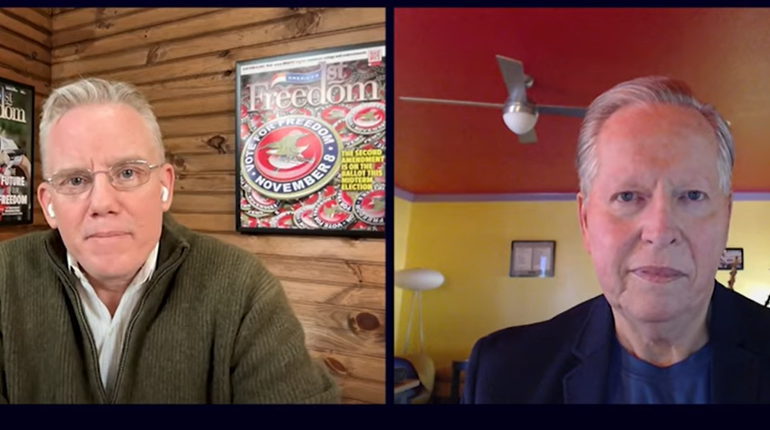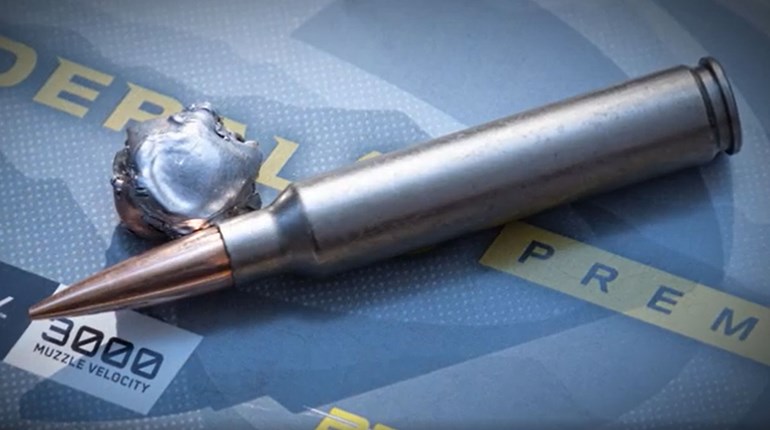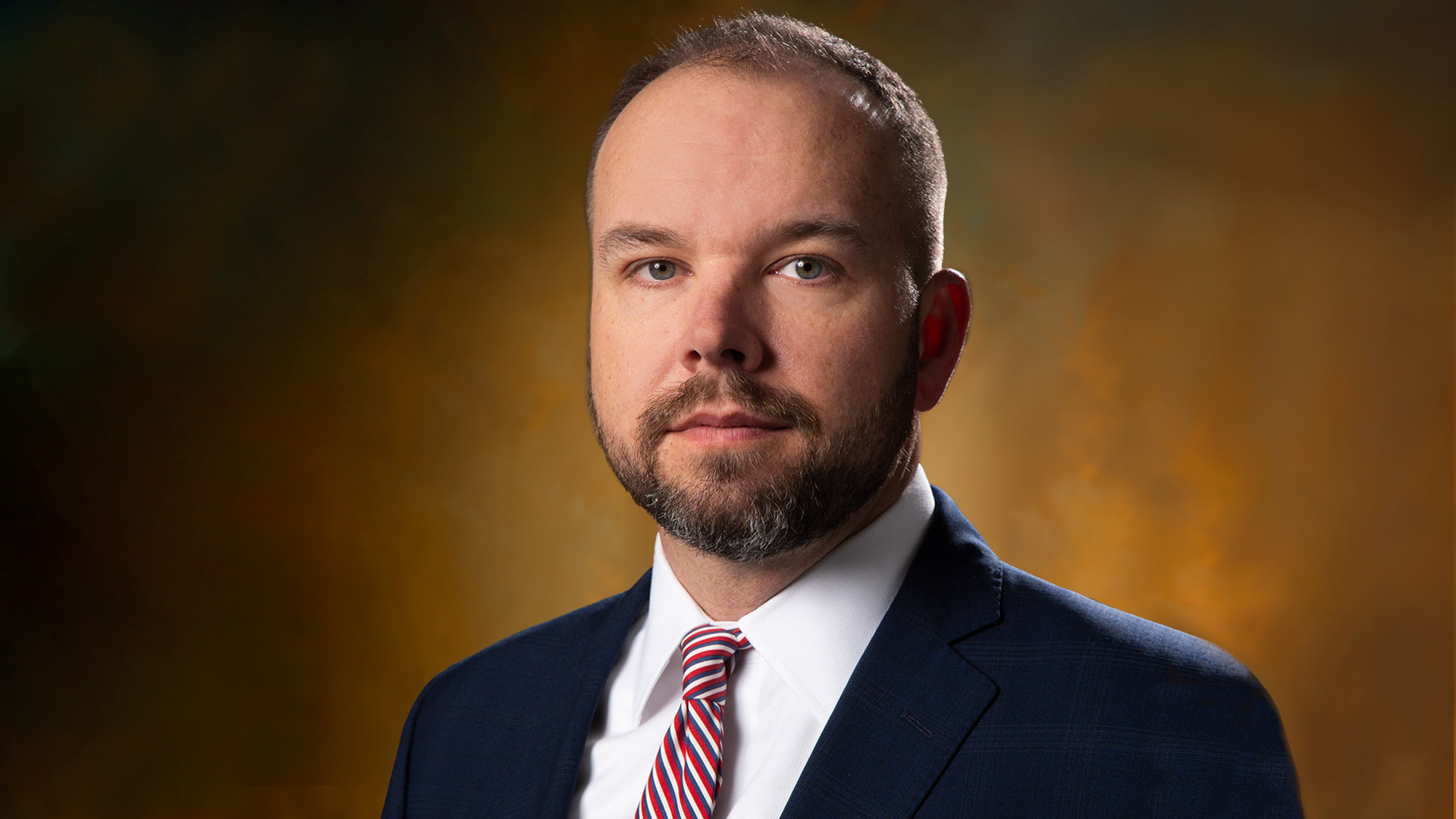Hollie McKay must give her parents nightmares, as she can’t be satisfied with other peoples’ versions of what’s happening—instead, she frequently ventures into the most-dangerous places on earth to find answers for herself.
McKay is a war and foreign correspondent, and now the author of Only Cry for the Living: Memos from Inside the ISIS Battlefield. She is Australian and was first exposed to guns used for hunting and sport by her grandfather. She immigrated to the U.S. and eventually ended up living in New York City and writing for Fox News. But it was her experiences on battlefields, much more than her upbringing, that have made her into a staunch and open-eyed defender of our right to keep and bear arms. She has seen firsthand what happens to disarmed peoples. She has spent time with all-women militias in Syria and Iraq, who have learned to shoot and soldier because they’re tired of being murdered, raped and otherwise preyed upon.
She has also investigated Mexican cartels and pirates—yes, real-life pirates—and has gone undercover into Venezuela to see how the people there are resisting tyranny. In her off time, she loves to shoot, ride a Harley and surf. She is almost like a character out of an action movie. Only she isn’t acting. Every time I speak to her, I am in awe of what she is doing, and I always urge her to keep safe.
Her earned perspective is worth listening to, but to really get it, you’ll need to buy her book. Only Cry for the Living is a jaw-dropping read.

A1F: Tell us about your experiences in war reporting. Are you ever armed? Are you always embedded, and therefore guarded by American or other troops?
McKay: I’ve never been armed with anything other than a pen and notebook while doing my job. When working in conflict zones abroad, I maintain the old-school journalistic tradition of not carrying a firearm. The roots of that are to remain neutral, and thus he deemed non-combative. But as ISIS, in its brutal beheading of a number of foreign journalists, has shown us, journalists are now active targets. Thus, the issue has become somewhat controversial in recent times, with more journalists choosing to bear arms on assignment. Whether or not this further endangers other reporters or aid workers is subject to very intense debate.
Each assignment, and each segment in that assignment, is very different. On most occasions, I am going undercover, and thus blending in with the populous and relying on faith and intuition to get me through. I don’t go with private security teams. I find the best information is usually acquired “blending in.” I have roamed these wars without a security detail from my company. There are times when I have embedded with the U.S. military or other foreign groups who are well-armed and serve as my fierce protectors. But embedded reporting isn’t my preferred way of attaining a full picture. I guess I don’t like rules too much. But it is always an honor to stand with U.S. troops and see firsthand the incredible men and women abroad and the risks they take in the name of our national security.
Ever since I was a small child, I have fostered a deep curiosity for understanding the human mind in its good and its ugly. What drew me most to war zones was to really see the full dimensions of the human species, from the brutal and evil to the tenderness and the will to survive. I’m interested in how ordinary people become extraordinary because they have no other choice.
I think there is a bit of an assumption that there is some sort of adrenaline rush associated with war reporting. At least in my case, there is nothing exhilarating about being in a suicide attack or watching people’s lives fall apart in an instant. But what I have come to appreciate is the lengths we all go to defend those we love—the women who jump in front of their kids in an ambush, the old men who pull an AK out from the rusty closet because it is their only chance to see another day when the terrorists come for them.
I still think there is something very surreal about being caught up in a bombing or a firefight. It’s like an out-of-body experience, where it is you, but it feels as though you are on the outside looking in, questioning why you are there and why you would choose to put yourself in harm’s way. Unlike those on the ground, I have the privilege of two Western passports and being able to exit. But in the middle of madness, that privilege is wiped away.
When bullets are flying at you, they are flying at you, but it is not really you. It’s this shell of a person, reduced to the evolutionary mindset of purely surviving. Of faith. It is fight or flight, and in my case as a non-combatant, it is flight. Nothing else matters. And when it is all said and done, you realize how special it is to be alive. To do things over. To have another day.
I also think the more experience you have working in a war zone, the fewer risks you are willing to take. I look back at some of the things I did in my twenties—running through minefields and sneaking through terrorist checkpoints in disguise—I probably wouldn’t do that stuff now. If I did, I would have much-more-detailed contingency plans in place. No story is worth your life, especially in these countries where one conflict seamlessly blends into another.
We, as Americans, need to have serious conversations about our presence. Moreover, I always try to be very mindful of the locals who come with me to frontlines and other red zones. We usually call them “fixers” and they act as interpreters and intermediaries for setting up appointments and logistics. They risk their lives for a little money, often have families at home who depend on them, and I would never want to put them in harm’s way for my sake of needing to get to the bottom of a story.

A1F: Did seeing what happens to disarmed peoples in Iraq, Syria, Mexico and more change or develop your view of guns and freedom? If so, how?
McKay: It didn’t change my perceptions, but it did reinforce to me the importance of personal protection and never relying solely on government entities to have your back and protect you. So often these are the ones committing the abuses of power on innocent civilians during times of conflict. And, of course, I saw time and time again how easy it is for criminals to find a way to bear arms. That is simply the way it works, and the good-hearted, law-abiding folks are then the ones who are left to be sitting ducks.
The harder guns were to purchase—in countries like Iraq you can’t just stroll into a gun store and buy guns—the bigger the black market trades were, and it was ISIS who was making money from that, as well as arming themselves to the teeth. It’s also the poorest in society who are the most impacted. Terrorists and the wealthy can buy levels of protection, and the poor farmers and villagers are left only with prayer to defend everything they have ever known or loved.
It is terrifying and sad to watch. Furthermore, I see in places like Iraq and Venezuela that it is not only criminal groups that have the leeway to terrorize populations, but authoritarian and/or socialist dictatorships who further their grip on control. I can’t help but think if such governments knew that the “good guys” had the will and the ability to fight back in the face of oppression, so many of these wars and skirmishes would not begin in the first place.
In places like Iraq and Syria, firearms have a very different connotation. Everyone knows what a gun is and what a gun does; and everyone respects the power of a weapon. They inherently understand that while it can easily take a life, it can also defend their own lives and give them a chance to see another sunrise.
A1F: You’ve reported on women’s groups who’ve learned to shoot and soldier in Iraq and Syria. How has seeing this changed you? Tell us about them.
McKay: I have met some of the most-incredible women in my journeys; it has been nothing short of a privilege to sit with them and share in those moments of raw humanity. Kurdish women in Iraq and Syria took an especially prominent role in fighting ISIS. They saw their position on the frontlines as pivotal, given that, as per Islamic traditions, a fighter will not go to the coveted “paradise” if killed by a woman. So this really served as a huge motivating factor, and also encouraged the men to support their wives, sisters, daughters and mothers to join the fight.
One of the highlights of my journalism career, as illuminated in my new book, is the time I spent on several occasions in the northern enclave of Iraq with a group of women who called themselves “The Sun Ladies.” These were women who had witnessed the annihilation of their families on the winding arteries of Mount Sinjar when ISIS invaded in August 2014. Kicking and screaming, they had been forced from their peaceful hamlets into sex slavery. They were the survivors fighting what was left of the storm—fighting for vengeance as well as survival.
The Sun Ladies were a sample of the 2,000 Yazidi women captured in the brutal August 2014 attack on Mount Sinjar, who had managed to escape over the past seventeen months. Driven by the raw memories of captivity and the unspeakable violations that came with it, hundreds of these women had decided to bear arms and fight the terrorists. They would not, could not, sit by and just wait to be violated again. The women had all lost something on that fateful day in August, and while they could never get that back; they were not going to rely on others to stop it from reoccurring.
I was intimidated in meeting them. These women had endured much more than I could possibly comprehend, and yet here they were—stoic and determined. They had a real purpose in what they were doing and what they were fighting for—their ancestral land, their missing loved ones, their religious freedom. It’s a mistake to paint them as broken because, as traumatized as they were, the Sun Ladies were still warm and welcoming. They understood that while ISIS had taken something from them, something they could never get back, they were not going to let these terrorists cleave away any more of their sanity. Enough was enough.
I think about them almost every day, and I still get chills. These women are my heroes. Sadly, many of them remain in squalid refugee camps with little means or recourse to ever return home.
I met another wonderful group of female fighters called the Zeravani in Iraq.
“When they saw women joining the operations against them, ISIS went crazy,” a Zeravani soldier named Hurya told me gleefully. “They don’t want to be killed by a woman because they won’t go to heaven. So, we need even more women to make the Da’esh angry.”
I remember her words clear as day. Hurya leaned forward and touched my hand, pausing for emphasis. “When a woman kills Da’esh, it is the best, most satisfying moment,” she gushed.
Hurya, at just 26, was credited with creating the all-female Zeravani unit five years earlier in a quest to protect their Kurdish land.
What I loved about both these groups was that they were of all ages, all walks of life. Some of the women were married with families of their own, while others remained solely devoted to bearing arms. It was still a work-in-progress to get full support from their male counterparts, but it was a work nonetheless progressing.
A1F: Is this appreciation for freedom some of what you hope to show people with Only Cry for the Living?
McKay: I really hope so. The book is a tribute to those who never give up the fight for freedom, for self-autonomy. I wanted the innocent victims of war to know that they matter, that their stories matter. But at the same time, for all Americans who read it, despite the current bitterness, there is a glaring reminder of just how beautiful our country is. We have freedom, but we must never take that for granted.
 A1F: Now, when you go to the range, how does all of this experience make you feel about shooting?
A1F: Now, when you go to the range, how does all of this experience make you feel about shooting?
McKay: Range time is recreation time for me. I go with my friends and we enjoy target practice without a care that anyone is going to shoot back or fire artillery shells at us. It is a time to banter and smile. It is not the same thing as being on a battlefield in the middle of the night where artillery shells are probing for the bunker you’re huddling in with soldiers, or while trying to catch some sleep in the corner of a rubble-strewn home while troops fight off wave after wave of suicide bombers. No. Range time is none of that.
Nonetheless, it is important to understand how firearms work, and enhance my knowledge of tactics and targets, a concept lost on many mainstream reporters, and especially with many of the women in the field. Second, there is something deeply therapeutic for me to take aim and focus my brain on a very specific goal; that ding of metal has remnants of meditation in a soothing way. I prefer shooting in wide-open spaces, either alone or with one other person; it has over the years become “me” time.
And furthermore, it’s a celebration of freedom. A personal exercise in gratitude, in knowing I have the ability to defend myself, something so many women in far-flung places cannot do. (Hollie McKay’s website is holliemckay.com)






















